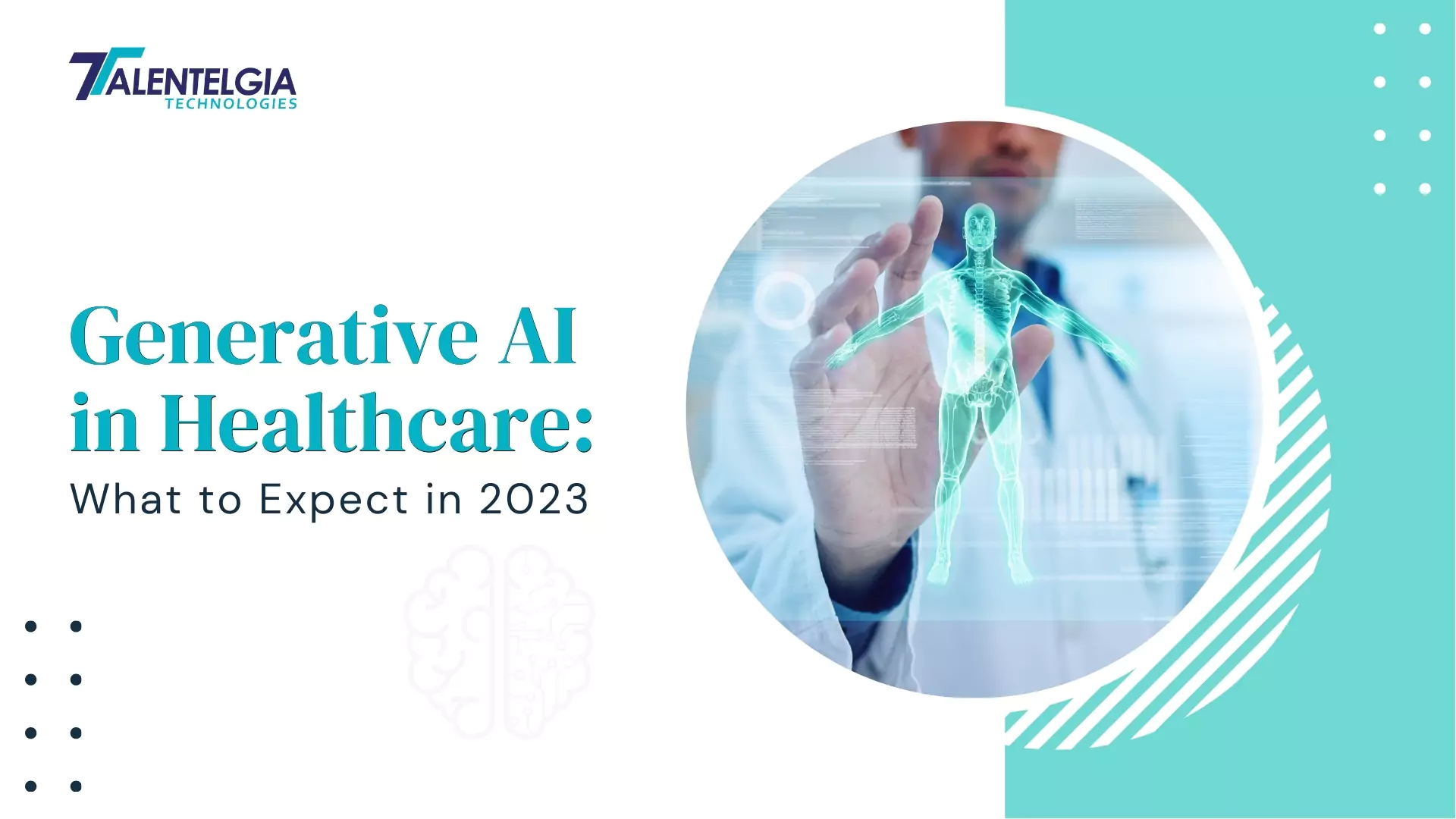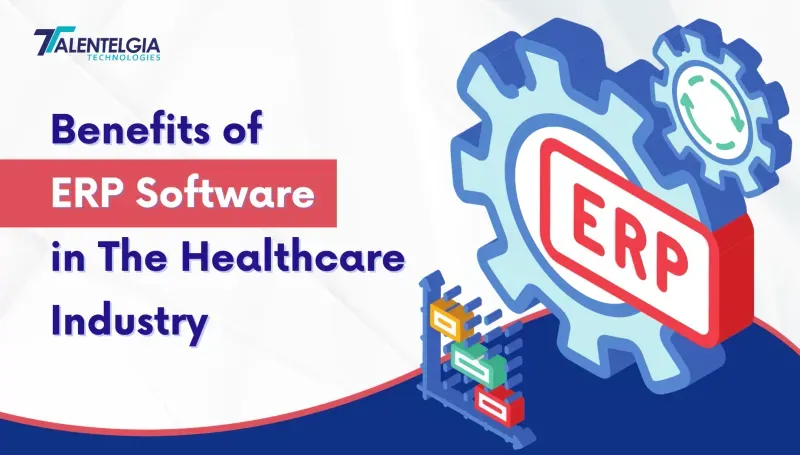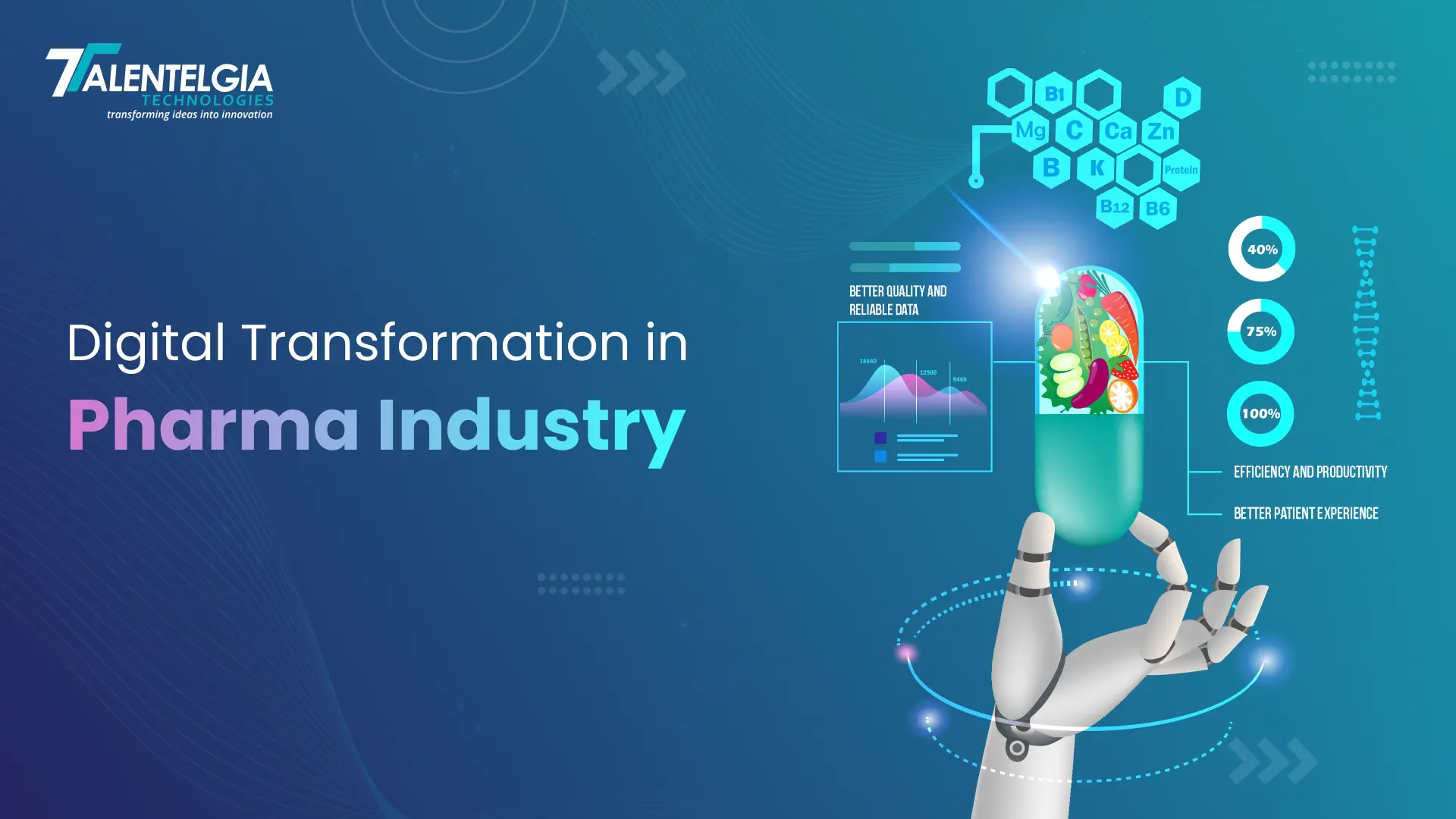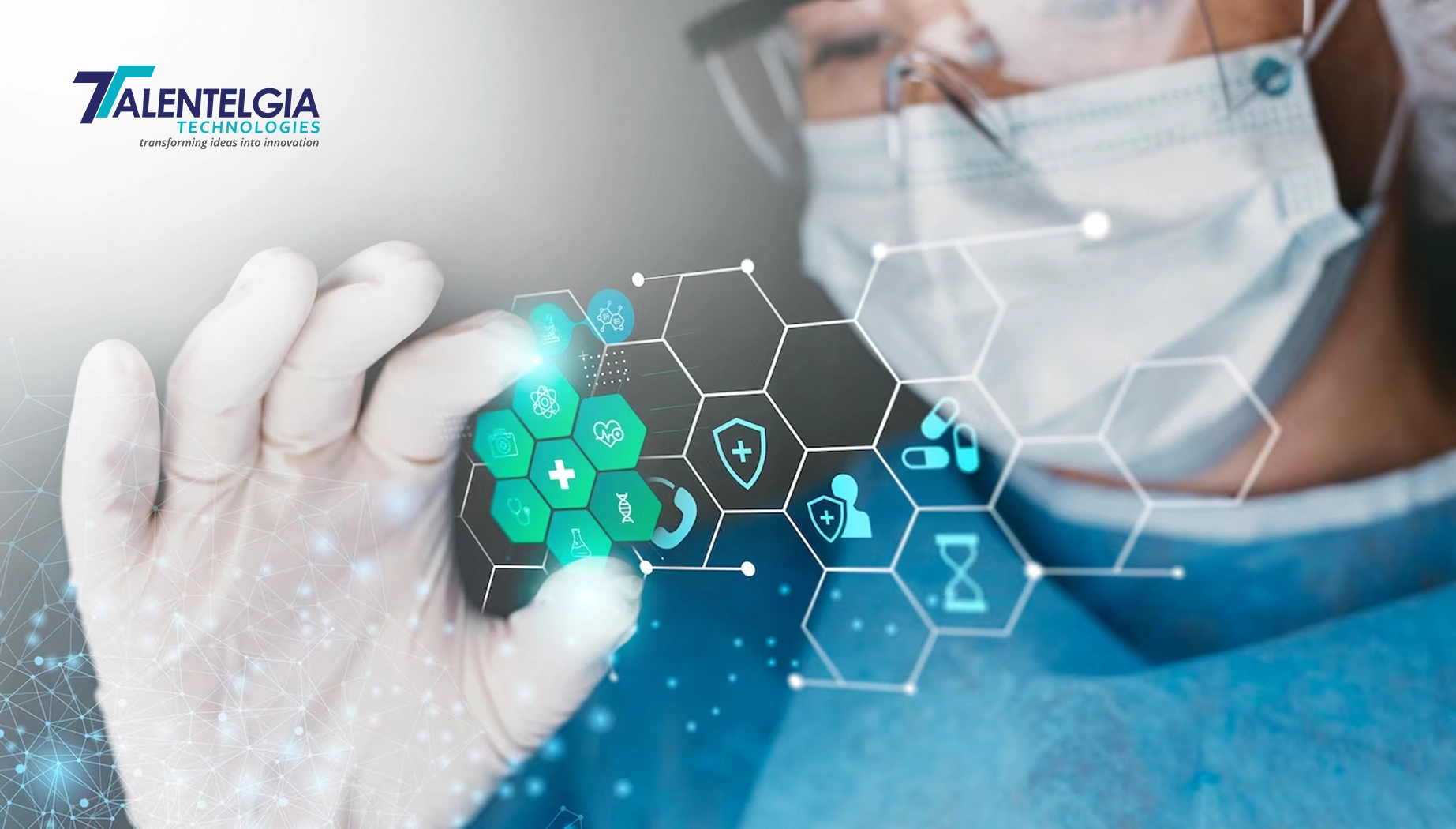Artificial intelligence (AI) has been revolutionizing many industries over the past few years – healthcare being one of them. With the advent of generative AI, the healthcare sector has seen a significant shift in the way the patient diagnosis is conducted and treatment is administered.
The utilization of generative AI in healthcare has not only improved the accuracy and speed of patient care but has also reduced the overall cost of treatment. With generative AI technology, doctors and researchers can examine complex medical imaging data more efficiently, effectively, and automatically.
In this article, we will be focusing on the future implications of generative AI in healthcare, what it is, and the different ways it is currently being used.
What is Generative AI?
Generative AI refers to a type of AI services that is capable of generating new data based on the existing input data it has been trained on.
This AI model has the ability to create new data with different and unique features, making it ideal for use in healthcare. With generative AI technology, doctors and researchers can examine complex medical imaging data more efficiently, effectively, and automatically.
What are the uses of generative AI?
AI and machine learning are used in healthcare to help doctors identify patterns that traditional methods may miss. Some of the uses of generative AI in healthcare are:
- Medical imaging: Medical imaging is one of the primary areas of focus for generative AI. Doctors can use AI-powered systems to produce high-quality images for diagnosing radiological diseases such as cancer, Alzheimer’s, and Parkinson’s.
- Drug discovery: Drug researchers can use generative AI to discover new molecules that can be used in the development of new medicines. Generative AI can also help to predict the side effects of drugs before they are released to the market, making them safer for human use.
- Predictive analysis: Generative AI technology can improve the accuracy of predictive analysis in healthcare, making it more advanced to predict patient outcomes in various medical conditions.
- Electronic health records (EHRs): AI can be used to process the vast amounts of data that is generated and stored in electronic health records. With generative AI technology, doctors and administrators can extract valuable insights to improve patient care.
What is generative AI in medical imaging?
Medical imaging is one of the most prominent areas in which generative AI is being used. Generative AI in medical imaging involves the creation of high-quality images using AI-powered computer systems.
These systems can generate more accurate and detailed images, which helps doctors, researchers, and medical professionals diagnose and treat diseases more effectively.
Generative AI in medical imaging involves a deep learning model that is trained using a corpus of images.
What are the examples of generative AI?
Here are some examples of generative AI in healthcare:
- DeepMind: DeepMind is a Google-owned AI company that is using generative AI for predictive analysis. DeepMind has already developed a deep-learning tool that can predict the onset of acute kidney injury up to two days in advance.
- Enlitic: Enlitic is one of the world’s leading companies in medical imaging AI technology. Its generative AI technology can generate medical images with greater accuracy and detail than traditional methods.
- Biovista: Biovista is a pioneering drug discovery company that uses generative AI to predict the side effects of drugs before they are released to the market. Biovista’s AI-powered system has proven to achieve more than 80% accuracy in predicting the side effects of drugs.
The potential benefits of Generative AI in Healthcare by 2025
Generative AI is going to revolutionize the healthcare industry. The use of generative AI technology in healthcare is expected to bring about various benefits, including:
- Improved accuracy: Generative AI technology will help physicians and medical professionals to make accurate and informed diagnoses and decisions.
- More Efficient use of resources: With the creation and interpretation of medical images and diagnosis being speeded up, it will save both doctors and medical professionals time in reviewing and diagnosing medical conditions.
- Effective treatment plans: With the potential possibility of predicting disease outcomes and the generation of better quality medical images, doctors can create a more effective treatment plan for patients due to accurate predictions.
- Reduced costs: With generative AI technology being implemented in healthcare, the diagnostic process and treatment plan can be carried out more efficiently, and accurately. This, in turn, could lead to a notable reduction in healthcare costs.
5 Uses of Generative AI in Healthcare
Generative AI or artificial intelligence is rapidly gaining popularity in the healthcare industry. AI can assist in medical diagnoses and treatments, drug discovery, virtual nursing, robotic surgery, and the development of medical devices. In the past, healthcare providers relied mainly on human expertise and information from medical records.
However, generative AI technology can analyze large datasets and generate insights faster and more accurately than humans. This article presents five essential uses of generative AI in healthcare and how it can improve patient outcomes.
Generative AI Models for Drug Discovery
Drug discovery is a long and expensive process that can now be made more efficient using AI. Drug compounds can be identified using generative AI, which can analyze billions of molecular structures in a matter of seconds.
In addition, generative AI can analyze data from clinical trials to identify toxic or adverse reactions upfront. Using AI insights might enable drug developers to weed out compounds that are not likely to be useful, resulting in a more efficient process to discover new drugs.
Personalized Diagnosis and Treatment
Generative AI can help in the personalization of diagnosis and treatment plans for patients. Every person has unique health characteristics influenced by genetics, environment, and lifestyle habits. Traditional diagnosis often considers only a few clinical features, ignoring individual variations. However, generative AI can analyze a large amount of data from medical records, patient histories, and even social media to build a robust health record inclusive of actionable data.
Moreover, generative AI can learn and adapt as it gathers more data about a patient. It can identify relationships between different symptoms and predict the likelihood of developing a particular disease or disorder based on the individual’s current state of health data.
AI-Assisted Robotic Surgery
Generative AI can also be used to make surgical procedures safer and less invasive. Robot-assisted surgeries are becoming more common, and generative AI can help improve their accuracy. By analyzing large datasets of medical images, generative AI can help surgeons gain insights into the surgical site before they begin the operation.
The AI can help guide surgeon’s decisions, minimizing room for error, reduces the risk of complications, and leads to faster recovery times for patients.
Virtual Nursing Assistants and Chatbots
Generative AI technology can support nursing staff to deliver timely and high-quality patient care. By generating patient insights like vital signs, medications, and lab results, these virtual assistants can free up staff so they can focus on more complex tasks.
AI Chatbots, applications that are capable of conversing with patients, can assist patients in managing their health. Chatbots can remind patients to take their medication, provide useful information about their medical conditions, and respond to frequently asked questions. By using generative AI to optimize these conversations, patients can get more personalized information and support.
Wearable and Implantable Medical Devices
Wearable and implantable medical devices are examples of transformative technologies emerging from generative AI advances. These devices can collect data from patients’ vital signs and send it to healthcare providers using wireless connections or Bluetooth.
This data can help monitor chronic conditions, predict potential health problems, and identify treatment inefficiencies. For example, an implanted device can monitor an individual with diabetes to ensure insulin levels are kept stable, allowing doctors to make more informed treatment decisions.
Conclusion
The utilization of generative AI in healthcare is a game-changer. It is making diagnostic procedures more accurate and personalized, improving treatment methods, making operations less invasive, and reducing the cost of drug discovery. As the use of generative AI continues to progress, there is no doubt that the healthcare industry will continue to experience drastic shifts in how healthcare delivery operates.
Talentelgia Technologies is an expert in business automation and has been utilizing AI to automate many startups and established businesses globally.
They have developed AI solutions for the healthcare industry, streamlining hospital processes, automating patient documentation, and upgrading the medical equipment industry. As a result, the healthcare sector can also take advantage of Talentelgia’s profound knowledge of business automation and implement generative AI solutions that can transform their operations.
Contact Talentelgia today for more information and to learn how we can help automate your healthcare business operations.


 Healthcare App Development Services
Healthcare App Development Services
 Real Estate Web Development Services
Real Estate Web Development Services
 E-Commerce App Development Services
E-Commerce App Development Services E-Commerce Web Development Services
E-Commerce Web Development Services Blockchain E-commerce Development Company
Blockchain E-commerce Development Company
 Fintech App Development Services
Fintech App Development Services Fintech Web Development
Fintech Web Development Blockchain Fintech Development Company
Blockchain Fintech Development Company
 E-Learning App Development Services
E-Learning App Development Services
 Restaurant App Development Company
Restaurant App Development Company
 Mobile Game Development Company
Mobile Game Development Company
 Travel App Development Company
Travel App Development Company
 Automotive Web Design
Automotive Web Design
 AI Traffic Management System
AI Traffic Management System
 AI Inventory Management Software
AI Inventory Management Software
 AI Software Development
AI Software Development  AI Development Company
AI Development Company  AI App Development Services
AI App Development Services  ChatGPT integration services
ChatGPT integration services  AI Integration Services
AI Integration Services  Generative AI Development Services
Generative AI Development Services  Natural Language Processing Company
Natural Language Processing Company Machine Learning Development
Machine Learning Development  Machine learning consulting services
Machine learning consulting services  Blockchain Development
Blockchain Development  Blockchain Software Development
Blockchain Software Development  Smart Contract Development Company
Smart Contract Development Company  NFT Marketplace Development Services
NFT Marketplace Development Services  Asset Tokenization Company
Asset Tokenization Company DeFi Wallet Development Company
DeFi Wallet Development Company Mobile App Development
Mobile App Development  IOS App Development
IOS App Development  Android App Development
Android App Development  Cross-Platform App Development
Cross-Platform App Development  Augmented Reality (AR) App Development
Augmented Reality (AR) App Development  Virtual Reality (VR) App Development
Virtual Reality (VR) App Development  Web App Development
Web App Development  SaaS App Development
SaaS App Development Flutter
Flutter  React Native
React Native  Swift (IOS)
Swift (IOS)  Kotlin (Android)
Kotlin (Android)  Mean Stack Development
Mean Stack Development  AngularJS Development
AngularJS Development  MongoDB Development
MongoDB Development  Nodejs Development
Nodejs Development  Database Development
Database Development Ruby on Rails Development
Ruby on Rails Development Expressjs Development
Expressjs Development  Full Stack Development
Full Stack Development  Web Development Services
Web Development Services  Laravel Development
Laravel Development  LAMP Development
LAMP Development  Custom PHP Development
Custom PHP Development  .Net Development
.Net Development  User Experience Design Services
User Experience Design Services  User Interface Design Services
User Interface Design Services  Automated Testing
Automated Testing  Manual Testing
Manual Testing  Digital Marketing Services
Digital Marketing Services 
 Ride-Sharing And Taxi Services
Ride-Sharing And Taxi Services Food Delivery Services
Food Delivery Services Grocery Delivery Services
Grocery Delivery Services Transportation And Logistics
Transportation And Logistics Car Wash App
Car Wash App Home Services App
Home Services App ERP Development Services
ERP Development Services CMS Development Services
CMS Development Services LMS Development
LMS Development CRM Development
CRM Development DevOps Development Services
DevOps Development Services AI Business Solutions
AI Business Solutions AI Cloud Solutions
AI Cloud Solutions AI Chatbot Development
AI Chatbot Development API Development
API Development Blockchain Product Development
Blockchain Product Development Cryptocurrency Wallet Development
Cryptocurrency Wallet Development About Talentelgia
About Talentelgia  Our Team
Our Team  Our Culture
Our Culture 
 Healthcare App Development Services
Healthcare App Development Services Real Estate Web Development Services
Real Estate Web Development Services E-Commerce App Development Services
E-Commerce App Development Services E-Commerce Web Development Services
E-Commerce Web Development Services Blockchain E-commerce
Development Company
Blockchain E-commerce
Development Company Fintech App Development Services
Fintech App Development Services Finance Web Development
Finance Web Development Blockchain Fintech
Development Company
Blockchain Fintech
Development Company E-Learning App Development Services
E-Learning App Development Services Restaurant App Development Company
Restaurant App Development Company Mobile Game Development Company
Mobile Game Development Company Travel App Development Company
Travel App Development Company Automotive Web Design
Automotive Web Design AI Traffic Management System
AI Traffic Management System AI Inventory Management Software
AI Inventory Management Software AI Software Development
AI Software Development AI Development Company
AI Development Company ChatGPT integration services
ChatGPT integration services AI Integration Services
AI Integration Services Machine Learning Development
Machine Learning Development Machine learning consulting services
Machine learning consulting services Blockchain Development
Blockchain Development Blockchain Software Development
Blockchain Software Development Smart contract development company
Smart contract development company NFT marketplace development services
NFT marketplace development services IOS App Development
IOS App Development Android App Development
Android App Development Cross-Platform App Development
Cross-Platform App Development Augmented Reality (AR) App
Development
Augmented Reality (AR) App
Development Virtual Reality (VR) App Development
Virtual Reality (VR) App Development Web App Development
Web App Development Flutter
Flutter React
Native
React
Native Swift
(IOS)
Swift
(IOS) Kotlin (Android)
Kotlin (Android) MEAN Stack Development
MEAN Stack Development AngularJS Development
AngularJS Development MongoDB Development
MongoDB Development Nodejs Development
Nodejs Development Database development services
Database development services Ruby on Rails Development services
Ruby on Rails Development services Expressjs Development
Expressjs Development Full Stack Development
Full Stack Development Web Development Services
Web Development Services Laravel Development
Laravel Development LAMP
Development
LAMP
Development Custom PHP Development
Custom PHP Development User Experience Design Services
User Experience Design Services User Interface Design Services
User Interface Design Services Automated Testing
Automated Testing Manual
Testing
Manual
Testing About Talentelgia
About Talentelgia Our Team
Our Team Our Culture
Our Culture

















 Write us on:
Write us on:  Business queries:
Business queries:  HR:
HR: 




